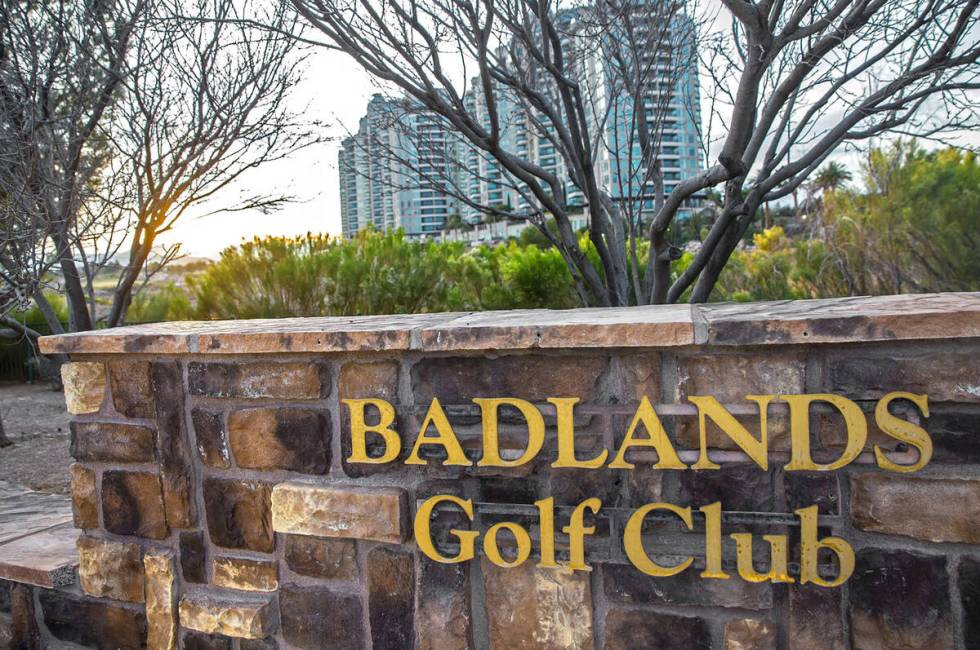Las Vegas breaks silence, defends legal battle with would-be Badlands developer

With court losses mounting against Las Vegas taxpayers, the city on Wednesday defended continuing its legal battle with the would-be developer of the Badlands golf course.
In a lengthy statement posted on social media that broke the city’s longtime official silence on the case, the city said it had made good-faith attempts to settle the dispute from the “onset.”
“However, the developer seeks hundreds of millions of dollars for a settlement on land that his company purchased for far less, along with a much higher density of homes than was ever envisioned for the area,” the statement said. “That is why the city has been compelled to find a solution in the courts.”
The legal dispute began shortly after developer EHB Cos. bought the 250-acre golf course in 2015 and residents of the upscale Queensridge neighborhood, which surrounds the golf course near Summerlin, objected to development.
In total, there are four lawsuits in various stages of litigation. The suits allege that the city illegally took property by not allowing land-use entitlements.
The Nevada Supreme Court in April upheld a $48 million award against the city in one of the cases — a fraction of the city’s potential liability.
Two other rulings totaling $189 million against the city are under appeal, and the last suit for a larger parcel of land is pending.
A proposed $64 million settlement for all the lawsuits, which would have included land use permits, fell through hours before the Las Vegas City Council was set to discuss it publicly.
EHB CEO Yohan Lowie said at the time that city officials had made last-minute changes to the proposal.
Vickie DeHart with EHB reacted to the city’s statement with her own, writing that she was “utterly shocked” by the city’s allegations.
“These statements and accusations are demonstrably false, indicative of a lack of good faith,” DeHart said. “Despite our genuine attempts to cooperate, we have been met with continual delays and aggressive legal tactics.”
DeHart said that the recent Supreme Court ruling “further solidifies this rejection of the City’s assertions.”
The city argued in its statement that it exercised its authority “like it would be an other project, based on long-standing state and city laws that promote harmonious and compatible development.”
Las Vegas noted that cities across the state signed onto a court amicus in its support.
“Nevertheless, the city remains open to finding a settlement that is agreeable to the developer and to the tax-paying residents of Las Vegas,” the statement said. “We are still hopeful that such a solution is attainable, and the city manager and city attorney are actively pursuing that solution.”
Contact Ricardo Torres-Cortez at rtorres@reviewjournal.com.